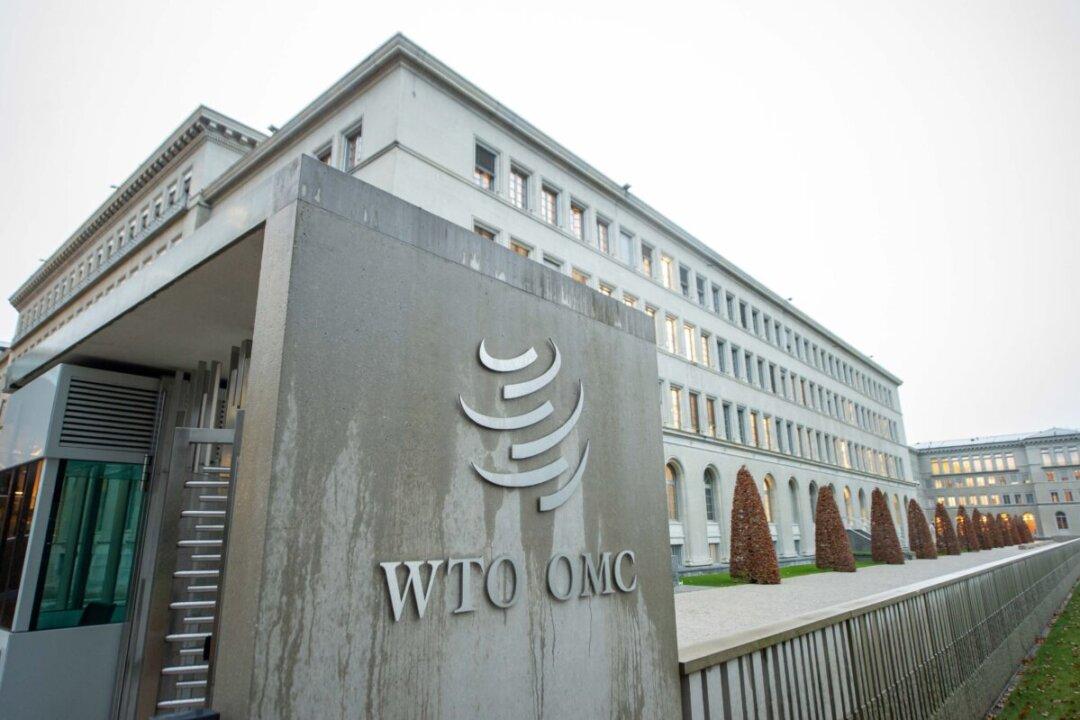The World Trade Organization (WTO) has published its 2022 edition of the World Trade Report, which pushes for more globalization and a shift away from fossil-fuel vehicles as part of its fight against climate change.
One of the messages of the report is that trade is a force multiplier as countries adapt and adjust to climate disruptions. “Open international markets would help countries achieve necessary economic adjustment and resource reallocation,” a press release about the report stated on Nov. 7. Countries that are more open to trade tend to have a “greater capacity to adapt to climate change,” the report stated.





